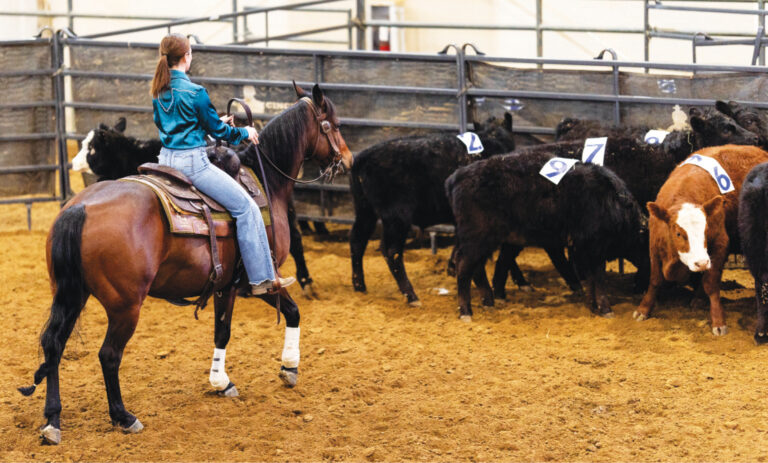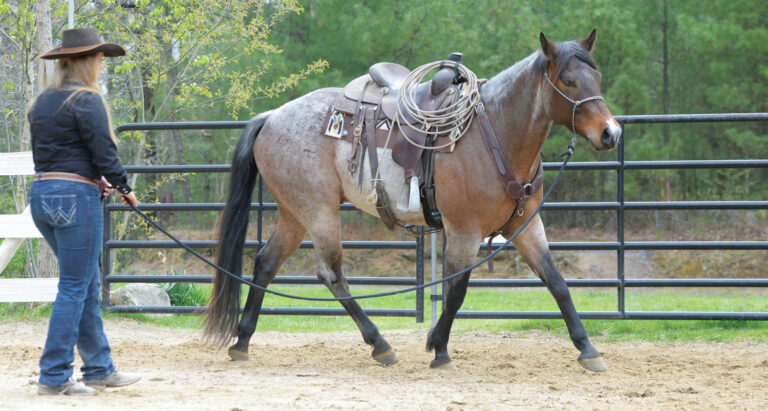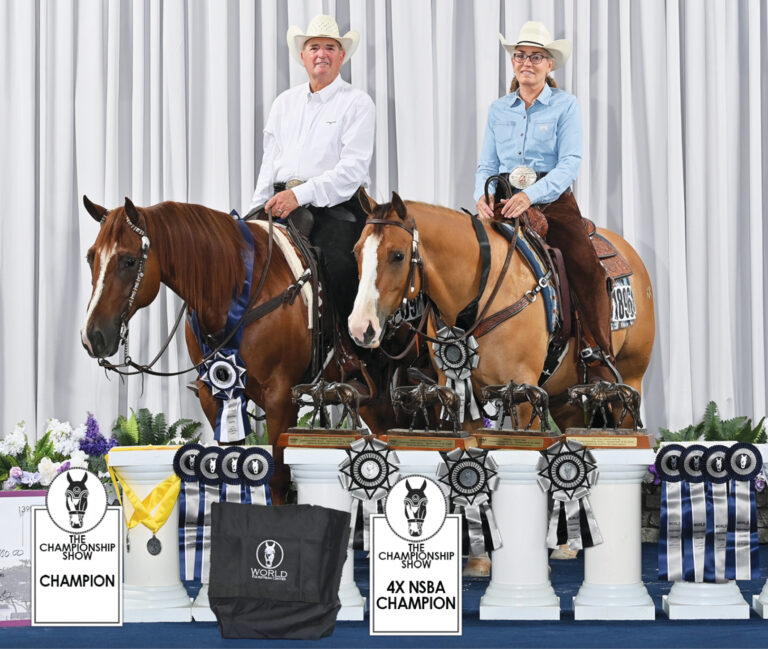The stress of horse shopping can lead buyers to make decisions they’ll regret in the long run. (And sometimes even in the short run!) Almost all of the poor choices I see buyers make are avoidable if you’re mindful in your purchasing process and make the effort. But, to make your next horse-shopping endeavor easier, I’ll list the top eight mistakes I see buyers make (in no particular order) so you can learn from them and avoid making them.
[READ: Time for an Upgrade]
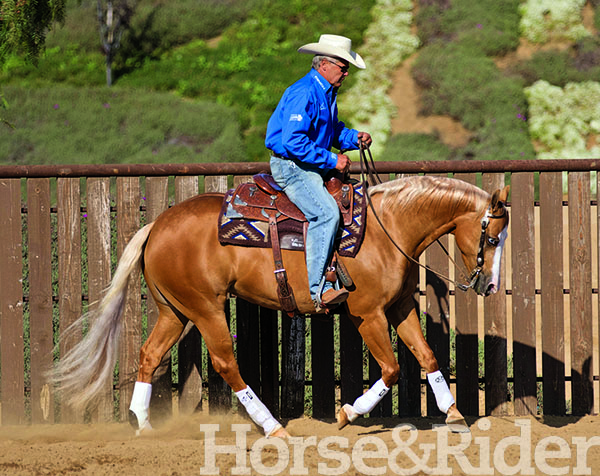
The Mistakes That Leave a Mark
1. Buying sight-unseen. The internet is a great place to start looking for a new horse. But buying one based only on your impressions of an online video and a few photos can be disastrous.
I’d never buy a horse without seeing it in person. I’ve seen horses online that I think are really cool—they might really be something and have potential. Then I see the same horses in person, and they’re not at all what I thought I saw on my computer screen. I’ve had the opposite happen, too. I look at a horse online, and I’m not impressed. But then I see it in person, and I see a completely different horse that has what I’m looking for.
[READ: Tips for Horse Buyers]
2. Color-blindness. I can’t tell you how many people call me looking for a horse, and their first criteria is color. “I’m looking for a palomino…” they’ll start. Their criteria should start with what the horse can do and how his abilities match up with their skills and goals. A good horse is a good horse, no matter what color.
It’s the same for other superficial characteristics. I’ve seen people look past a horse because they didn’t like his mane. Just as you can put custom wheels on a car, you can grow a mane.
3. Not seeking help when buying. Find a person you trust to help you with this mission. It doesn’t have to be a trainer, although professional help will probably net you the best results. An informed outside opinion will keep your eyes open to faults you might not see or choose to ignore. I always compare this to buying a house. I don’t know anything about buying real estate, so I hire a professional realtor to help me find what I’m looking for. Yes, it costs money, but it’s worth it in the end when I have a house—or you have a horse—that’s right.
4. Focusing on vetting. It’s getting to the point that horse buyers pass on a prospect because of something tiny. If it’s something major, then that’s understandable. But you must remember that the horse is an imperfect animal. If you “vetted” some of the top professional athletes in the world, would they pass a check? Probably not. But they’re still spectacular athletes.
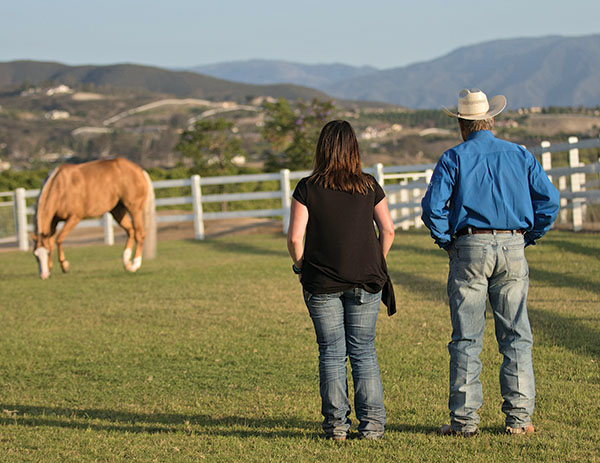
There will always be bumps and scratches along the way, and that’s where using the right vet comes into play. You must fully trust that your vet understands your needs, what you’re looking for, and will be completely honest with you. When we identify a potential problem, I’ll ask my vet, “Would you buy him with this issue?” If he answers no, I walk away.
[READ: Do This Before Buying a Horse]
I’ve had horses that didn’t pass the vet check that went on to be world champions. I’ve also had those that passed with flying colors and were zeroes. Be open-minded and use trusted resources.
5. Not buying a horse that fits your needs. I see it happen all the time. The inexperienced rider buys a young horse. The large-frame rider buys a little mare. The older rider who wants to compete now picks a horse that needs five years of training before it can be shown. For some reason, many people are attracted to horses that are exactly wrong for them.
Buy something that fits you and your needs right now. If you want a colt to bring along, do that as a side project, if you can afford it.
6. Buying from people you don’t trust. It’s imperative that you deal with trustworthy people who will back up the product. This is where No. 3 comes back into play: Find someone with an extensive network who can tell you which sellers to deal with and which ones to avoid. Find the sellers who are known to offer full disclosure on the horses they’re selling. You want to buy from someone who’s going to tell you the good, the bad, and the ugly. Otherwise you might end up with a horse that has a problem you can’t live with. Can you live with a cribber? Some people can’t. If that’s not disclosed by the seller and he won’t back up what he sells, then you’re stuck.
7. Not trying the horse. If I’m shopping for a colt, I’ll go ride him at home. But if I’m looking at a horse that’s been shown a lot, I probably will want to try him at a schooling show or at least watch him be shown. I want to see what it takes to get that horse prepared to compete. Just because a horse has a lengthy show record doesn’t make him the right one. He might have quirks and tricks, and he probably knows more than you do in the show pen. You want the opportunity to see how (and if) you can handle him.
8. Going blindly into an auction. Horse auctions are a whole other deal than private-treaty sales. You need the help of someone who knows that sale inside and out. That person probably knows the seller and the horse, which helps avoid many of the mistakes I’ve listed.
[READ: Finding the Right Horse]
The Bottom Line
Buying a horse can be a major investment of time, money, and emotion. Take the time to check out all of your options. Investigate the entire situation. Evaluate without blinders. And then make a clear-headed decision based on the facts and insights you’ve gathered. It’s not the easy way to buy a horse, but it’s the right way to ensure that you get what you need and want.
A multiple AQHA world champion, Avila has also won three NRCHA Snaffle Bit Futurities, the NRHA Futurity, and two World’s Greatest Horseman titles. He received the AQHA Professional Horseman of the Year honor. His Avila Training Stables, Inc., is in Temecula, California. Learn more at bobavila.net.

